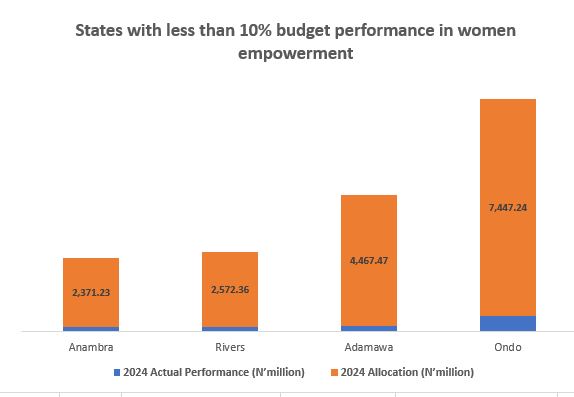The Central Bank of Nigeria (CBN) on Tuesday commenced a tactical easing of its Monetary Policy by harmonising the Cash Reserve Requirement (CRR) on public and private sector deposits at 31 percent, and also retained Monetary Policy Rate (MPR) and Liquidity Ratio at 13 percent and 30 percent respectively.
The CBN is concerned that Monetary Policy was gradually reaching tightening limits and at this time would require complementary fiscal and structural policies as the only way out.
Analysts said yesterday that CBN’s action might witness more injections into the system,based on the number of banks with public sector funds. This will impact on yields on fixed income instruments that are expected to drop following renewed interest in the equities market.
This is because the additional liquidity into the system may be channelled to the fixed income market, given the current attractive yields. This in turn may help push down yields within the short term.
The policy is expected to give impetus to the Treasury Single Account (TSA), currently being implemented by government.
“If a TSA is going to be properly introduced, a single CRR rate makes sense – as there will no longer be a need for separate public sector and private sector CRR rates.A TSA would make sense, given the revenue pressure the new government will face. It should lessen some of the borrowing requirement. There are strong economic arguments in its favour. Assuming no introduction of a TSA, the banking system is now no longer disincentivised when it comes to seeking public sector deposits.
Speaking further, Khan said,“While we see this measure as resulting in an eventual tightening, the immediate impact on market liquidity will depend on the ratio of private sector to public sector deposits in the Nigerian banking system.If we assume that ratio is 80:20, the CRR harmonisation has a neutral impact on liquidity in the banking system. If the ratio is closer to 70:30, the CRR harmonisation should see some injection of liquidity back into the banking system.
“Our calculations – based on data available from February, suggests a rough 73:27 ratio of private sector deposits to public sector deposits. If this still holds true,(and a lot has changed since February) we expect to see the injection of some back into the banking system. Banks that are more reliant on public sector deposits will be the key beneficiaries of this additional injection of liquidity,”
Ayodeji Ebo, head investment research, Afrinvest West Africa limited, said the slight easing may engender a positive impact on the financial market in sessions ahead, as banks that are more exposed to public sector deposits will experience more liquidity, while those with more private sector deposits exposure will remain constrained. By implication, the CBN unleashed the strings on deposits in the banking system; hence, increasing available deposits by approximately N528 billion.
“In our view, the expectation that the new CRR may lead to increased real sector lending may not actually be the case in the interim, given the evident risks that pervade the space.
“Based on management guidance, banks are not willing to increase lending expressively until the new administration settles and policy direction is ascertained”, Ebo said.
Analysts with Afrinvest research said, “We expect the equities market to react positively to this, given its implied impact on interest income of banking tickers going forward.”
Another major concern of the apex bank is the significant and disturbing rising trend in credit to government, which it sees as a potential headwind to growth, with negative spillover to the already elevated lending rates, credit to the private sector and aggregate domestic investment, including inflationary pressures.
Federal Government borrowing increased by 177.26 percent in April, 2015 or 531.79 percent on an annualised basis, pushing up the annualised net domestic credit by 28.98 percent over that at the end of December, 2014, Emefiele said.
The finance ministry said recently that the Federal Government has so far borrowed up to N473 billion out of the N882 billion approved in the 2015 budget to keep afloat in a difficult cash crunch where revenues have dropped by half and capital releases crippled, eventhough government has managed to implement the recurrent aspect.
Godwin Emefiele, CBN governor , who announced the outcome of the two-day Monetary Policy Committee meeting, said the current discriminatory CRR on public and private sector deposits was no longer necessary and had constrained the policy space and could even inspire moral hazards by private market participants.
Emefiele said the Committee’s position is that while additional tightening measures may not be appropriate now, to avoid overheating the economy, a harmonisation of the CRR is imperative, in order to curb abuses and improve the efficacy of monetary policy.
Analysts described the CRR harmonisation as ‘comforting’ and projected it could free up to N30 billion into the system.
The CBN in November 2014 raised the CRR on Private Sector Deposit by 500 basis points (bps) from 15 per cent to 20 per cent, while leaving that on public sector at 75 percent.
“Before now, what we had was CRR based on private sector at 20 percent, and on public sector at 75 percent. What we have done is to have a composite rate because we think there is no need to have CRR segregated for both private and public sector deposits.
“..now, there is no need for anybody to begin to wonder whether we are moving CRR on private and public sector and we think it will help to achieve the efficacy of the CRR regime,” Emefiele explained.
He explained the CBN’s concerns about the creeping headline inflation since January 2015 but noted that the causal factors were largely transient and outside the purview of monetary policy.
The CBN is also deeply concerned over what Emefiele called the ‘lackluster’ performance of the external sector arising from a number of significant global shocks.
According to the governor, such shocks are seen to be coming firstly from the prospects of monetary policy normalisation in the US with attendant increase in global interest rates and accentuating capital flow reversal which could further exacerbate tightness in global financial conditions and create further pressure on the naira.
Second, is the continued glut in crude oil supplies amidst softening prices, anchored by sluggish global output expansion which could further threaten foreign exchange earnings and accretion to external reserves over a much longer period, Emefiele said. He added that a near- term rally in oil prices is further undermined by the diminishing market power of the Organisation of Petroleum Exporting Countries (OPEC).
The third shock, according to him, would come from the anemic recovery in the Euro Area and Japan and tepid growth conditions in China, which constitute an additional drag on crude oil export prospects. Consequently, the decline in trade balance, which commenced in the second half of 2014, could persist over a much longer period, with further implications for public revenues and external reserves.
“In the light of these developments, therefore, the Committee stressed the need for proactive measures to protect the reserve buffer to safeguard the value of the domestic currency and engender overall stability of the banking system,” the governor further announced.
Onyinye Nwachukwu & Hope Moses-Ashike








